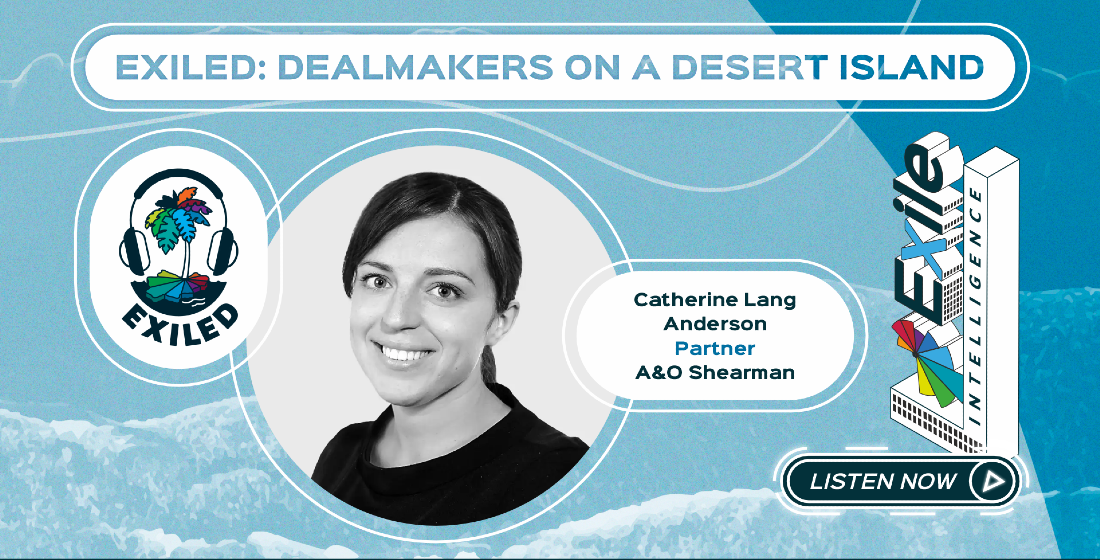Shop talk: EASTvine – the rise of the small and flexible trade fund
TXF spoke with EASTvine Capital, a small alternative fund set up in Singapore in 2018 by three ex-bankers who saw an opportunity to fill the commodity trade finance funding gap in Asia, which currently stands at an estimated $600 billion.

 TXF: Tell us a bit about EASTvine Capital and exactly what you do here?
TXF: Tell us a bit about EASTvine Capital and exactly what you do here?
Sammy Fong (SF): EASTvine Capital is a registered fund management company regulated by the Monetary Authority of Singapore, of which I am CEO. Amongst myself and the two other founders, we have over 60 years of experience in trade and commodity finance. Eunice Chin, our chief financial and risk officer, was heading up and rebuilt the energy commodity clients’ desk in Asia for ABN AMRO before EASTvine. Anubhav Mehrotra, chief investment officer, and I both worked at Citibank, setting up its commodity finance business in Asia from scratch. We also have a new colleague Buck Eng Siew, heading our trade finance operations and middle office, who has over 35 years of experience and also worked with Anubhav and I at Citibank and previously with Eunice in Raiffeisen Bank.
We left banking to set up EASTvine Capital in 2018, which serves as a reflection of how we feel the banking landscape has changed structurally over the past years after the GFC. We do see a huge demand for financing of interesting deals, especially for SMEs. The fund provides short-term, senior, secured, structured, trade financing to companies within the commodity value chain in sectors including energy, metals & minerals, agriculture. We also work across different financing structures: pre-payments, borrowing bases, inventory financing, receivables financing to name a few.
TXF: What trends and opportunities are you seeing in the market at the moment?
SF: We see a huge demand for alternative financing and think this trend will continue to grow. We have a wide network of past connections, and lots of companies are not getting sufficient financing, such as the smaller and/or new set ups whose management we are familiar with.
But we also see a lot of mid-sized companies – with turnover of $500 million to a billion, who are also not getting the right financing – considered too small for corporate banks and too complex for SME banks.
We see a lot of requests across various sectors in the commodities market from trading companies of all sizes. We do come across several agri-traders, but we’re not always comfortable with the certain types of transactions they want to do. We also see a number of energy transactions, including coal, which we are selective about as we are also a signatory to Principles for Responsible Investment (PRI).
We will be flexible in terms of the ticket sizes we will lend, but are not willing to compromise on our credit underwriting standard. Our flexibility does not mean we disregard credit risk and structure.
 Eunice Chin (EC): When we first set up our infrastructure and given that we want to be regulated, the first thing we looked at was the quantitative side of our underwriting standards. We subscribed to S&P for certain specialised rating methodologies, and of course with Refinitiv for our KYC, AML and CFT support. These fundamental infrastructures are crucial as they enable us to first screen our potential clients quantitatively as we conduct a list of other qualitative evaluations. In that way, we are set up like a “mini-bank”.
Eunice Chin (EC): When we first set up our infrastructure and given that we want to be regulated, the first thing we looked at was the quantitative side of our underwriting standards. We subscribed to S&P for certain specialised rating methodologies, and of course with Refinitiv for our KYC, AML and CFT support. These fundamental infrastructures are crucial as they enable us to first screen our potential clients quantitatively as we conduct a list of other qualitative evaluations. In that way, we are set up like a “mini-bank”.
TXF: Are you seeing any drop off in deal volume amid the current pandemic?
SF: The whole situation is still evolving. We haven’t seen any direct impact on deals of yet. Of course, Covid-19 is affecting the overall economy, so there has been some impact on our office operations such as activating our Business Continuity Plans (BCP) practices. The wider impact on the general market may cause investors to react, matched with the recent market turmoil, is inevitable for one to become more cautious, asks more questions and raises more concerns which we best address them whenever they arise. Some may take it positively, taking a forward-looking view on unavoidable diversification of portfolio and view a funding strategy like ours more favourably. That said, of course some may withdraw.
EC: Commercial banks will probably be more affected because of their size and business volume. On the news, we are seeing all sorts about how, for example, Covid-19 is causing a massive glut of supply in LNG cargoes, force majeure triggered with interpretation differing amongst jurisdiction and now spilling over to energy supply gluts. As a small fund manager, this type of problem, to date, has not affected our young operations, notwithstanding, we keep ourselves abreast of the market happenings and developments.
 Anubhav Mehrotra (AM): I agree. Bigger banks that support bigger companies with more complex supply chains will be impacted upfront. The companies we work with have relatively simpler and more straightforward supply chains.
Anubhav Mehrotra (AM): I agree. Bigger banks that support bigger companies with more complex supply chains will be impacted upfront. The companies we work with have relatively simpler and more straightforward supply chains.
Whether during a Covid-19 outbreak or not, we always look into the fundamental transaction flow, where the commodity is coming from and where it is going, what are the alternatives, if a buyer failed, what would be all our options? This sort of basic analysis is now more important than before, but the pandemic has not fundamentally changed the way we look at transactions.
Due to our business and target market being more straightforward, the impact will either be later or minimal. But at the moment, demand is still high.
EC: We will, of course, have to consider which traders, refiners and producers will be able to survive drastic price volatility, i.e. a reflection of their internal governance, liquidity and credit risks management. We have to follow the market closely, as with any sharp drop in pricing, there is potential for contango play.
TXF: Do you think borrowers may begin to approach funds like yourselves instead of banks because of this pandemic?
SF: This is fairly unlikely, as we don’t see banks as competitors, but we are all part of the whole financing/lending ecosystem playing different roles with different cost structures to support the real economy. But having said that, one or two years ago we had a client who had been in talks with commercial banks about a pre-payment deal. Once the client had the banks approval, the legal documentation process proved too lengthy and they came to us for a more efficient transaction. Unfortunately, we were not quite ready to launch at that time.
However, with the recent spate of defaults involving commodity trading companies, we are reading more international banks are re-evaluating their commitment to this sector, thus it may translate to more opportunities for funds to pick up good quality deals from their potential withdrawal.
AM: All the big banks are concentrating on working with big names, and obviously this type of client will get low pricing. But that leaves a massive demand from a huge number of borrowers who do not qualify in the bank’s initiative of “flight-to-quality” because of their size, even if they are companies with a good track record and management reputation.
TXF: Do you see hybrid structures between alternative funds and banks becoming a valid deal structure?
AM: We are more likely to work with a trader on a hybrid loan structure, taking 50/50 risk, or whatever percentage, than collaborating with a commercial bank. Our target market, our return expectation, our structuring capabilities, our turnaround, every metric you can think of, is very different from a bank. We are more aligned to a trader working with a smaller producer.
Some traders will use their own equity or cheap financing they have raised from banks. If they find an opportunity to off-take from a smaller producer, they might pre-pay in exchange for off-take. For various reasons, they might want to de-risk part of that pre-payment. Big banks won’t do it because they won’t take on the risk of a small producer.
So, this is where funds like us, who understand the pre-payment structure, who have a good relationship with the big commodity traders, who understand the jurisdictional issues, can come in and partner with these traders, sharing the risk of that pre-payment.
EC: If feasible, we would like to work with banks to provide certain banking services which we, as fund managers, are unable to provide and take the portion that we can; a ‘win-win’ collaboration for all parties.
SF: We actually have a producer client, who a large trader pre-pays at attractive terms, but they still like us to finance their production for the sake of diversification.
EC: Or they could be sounding out additional financing so they can ramp up their production.
AM: One of the other aspects of the fund that is consistent with how we used to do things when we were working in banks is that we still work with good and knowledgeable legal counsels, such as Norton Rose Fulbright and Simmons and Simmons.
Sometimes people might have the view that a fund’s flexibility comes from compromising its discipline in terms of credit underwriting or transaction structure. Of course, we are able to complete the deal faster, but this is not because we skip steps, it is because we are a small group in which everybody understands the steps and we control the whole process.
The law firms would perhaps want to address the gap in the market for funds as well, because as much as it’s business for us, it’s business for them. Maybe not transactions of higher value in absolute terms, but transactions of growing volume will be done outside the banking space in the near future.
TXF: What types of headwinds are you facing at the moment?
EC: As a new fund, we unsurprisingly face headwinds in the form of fundraising.
SF: Our initial approach has been to sound out fundraising through our network. Like a lot of new funds, we have targeted accredited investors and family offices. This asset class, while it will grow, is still too young for institutional money to come in in a meaningful manner. Some funds have tapped into it, just because they have many years of track record. What we have, albeit a new fund manager, is the experience of actual practitioners with decades of real direct lending experience and managing such portfolios respectively in our previous lives.
AM: We have to exhibit track record growth to our investors, which is what we are in the process of doing. The headwinds we are facing are more around the lack of investor awareness on this asset class, rather than whether we believe there is a market for it. For our current investors, this is the first time they are being approached to lend around commodity trade finance. The short-term, lower returns nature of the business vis-à-vis traditional private credit funds is a mindset change for investors.
SF: Trade finance can be painted in a negative way for being risky, but credit risk exists in all credit structures and lending businesses. Our focus will always be to maintain discipline in our deal origination and execution. Steer away from complacency and keep going on. We want to reach the optimal fund size we have in mind and is currently moving in the difficult, but right direction.
EC: The fulfilling part is sharing our knowledge of the market with investors, which we enjoy because we love this trade finance and commodity business, which is the backbone of most countries’ economy.





